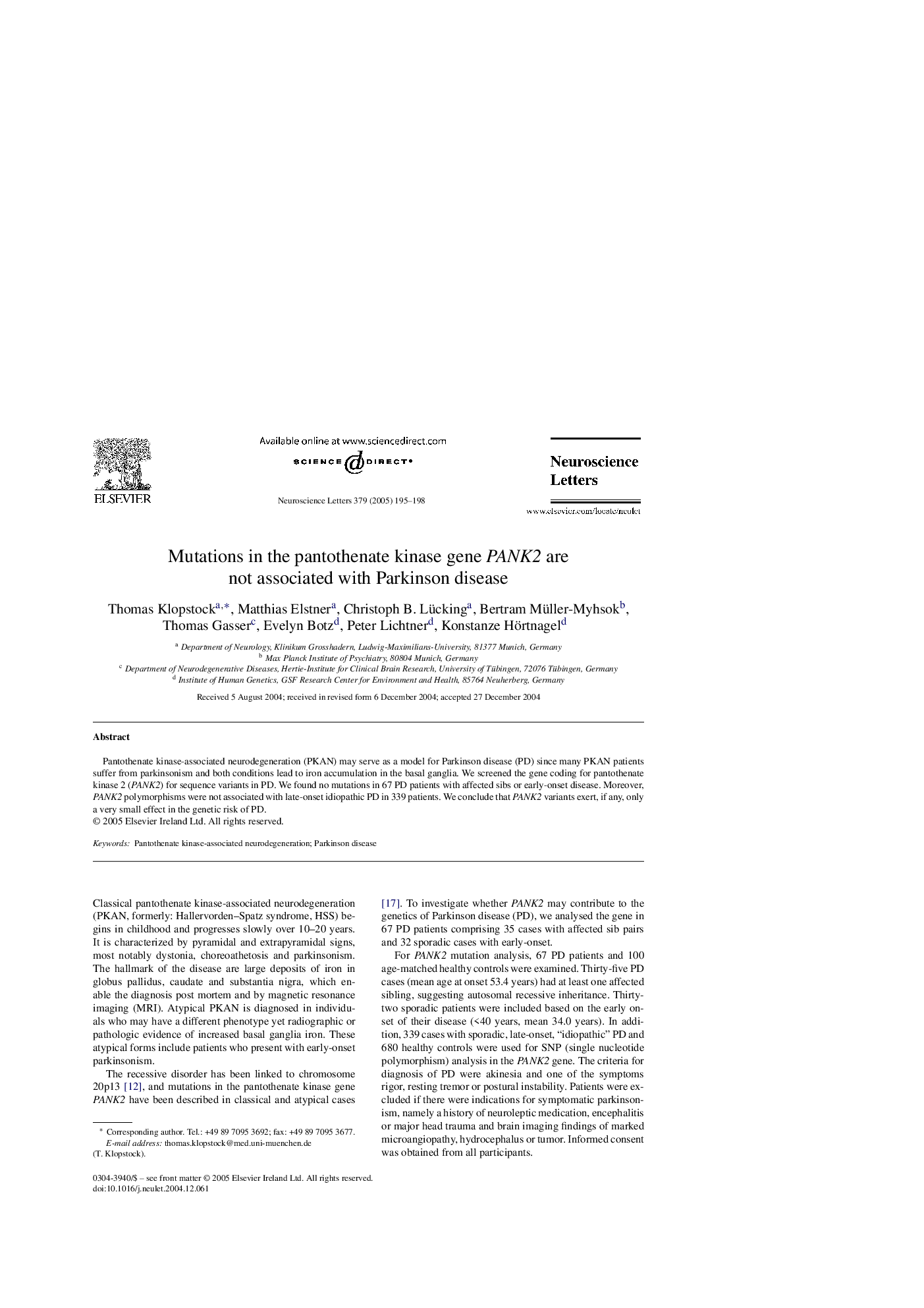| Article ID | Journal | Published Year | Pages | File Type |
|---|---|---|---|---|
| 9429540 | Neuroscience Letters | 2005 | 4 Pages |
Abstract
Pantothenate kinase-associated neurodegeneration (PKAN) may serve as a model for Parkinson disease (PD) since many PKAN patients suffer from parkinsonism and both conditions lead to iron accumulation in the basal ganglia. We screened the gene coding for pantothenate kinase 2 (PANK2) for sequence variants in PD. We found no mutations in 67 PD patients with affected sibs or early-onset disease. Moreover, PANK2 polymorphisms were not associated with late-onset idiopathic PD in 339 patients. We conclude that PANK2 variants exert, if any, only a very small effect in the genetic risk of PD.
Related Topics
Life Sciences
Neuroscience
Neuroscience (General)
Authors
Thomas Klopstock, Matthias Elstner, Christoph B. Lücking, Bertram Müller-Myhsok, Thomas Gasser, Evelyn Botz, Peter Lichtner, Konstanze Hörtnagel,
